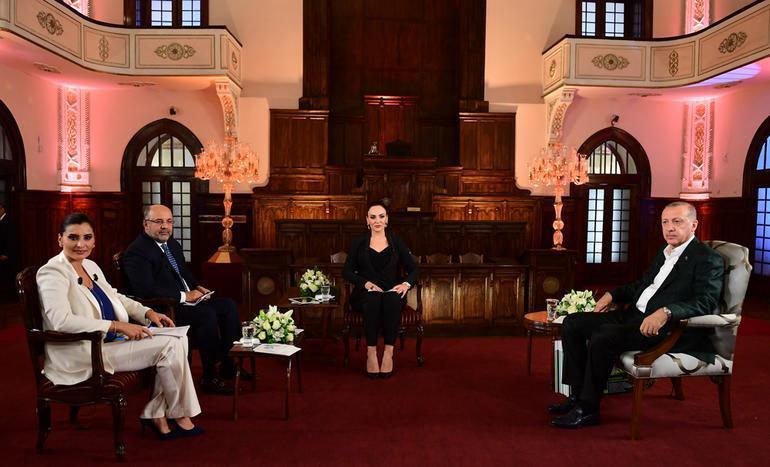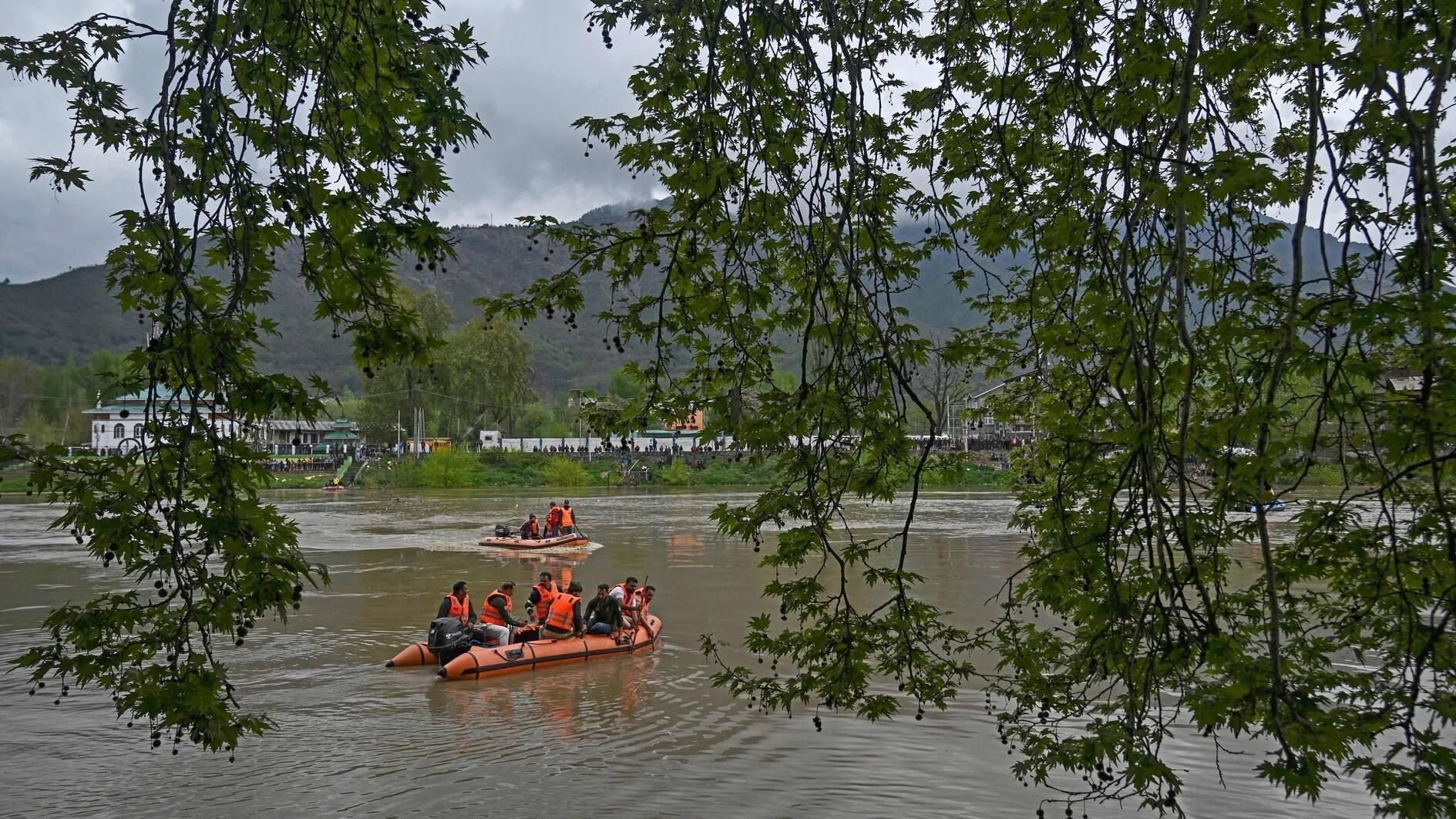Turkey may lift state of emergency after elections: Erdoğan
ANKARA

The state of emergency declared in the wake of the July 2016 failed coup attempt may be lifted after the June 24 elections, President Recep Tayyip Erdoğan said late June 7.
During a live broadcast on private broadcasters CNN Türk and Kanal D, Erdoğan answered the questions of Mehmet Soysal, the CEO of Demirören Media Group, and Hande Fırat, daily Hürriyet’s Ankara representative. The program, aired from the historic parliament building in Ankara, was moderated by Kanal D anchor Buket Aydın.
“God willing, we will review the state of emergency after the elections and we may lift it. We will work on it after we form a cabinet. The issue will not linger on for so long. We will take a step and move on,” Erdoğan said following a question.
'Mahmur may be another target in Iraq'
As Turkey considers to carry out an operation in northern Iraq’s mountainous Qandil region where high-ranking members of the outlawed Kurdistan Workers’ Party (PKK) are hiding, Erdoğan said the United Nations refugee camp Mahmur in the Arbil governorate could be another target.
“I am announcing this for the first time. Mahmur is very important. If the United Nations cannot solve this problem, we will strike Mahmur,” he said, describing the camp as a “breeding ground for terrorists.”
He stressed that a military operation targeting PKK bases in Qandil and Sinjar would be launched if “Turkey is threatened and if Baghdad says it is unable to solve the problem.”
Canal Istanbul and opposition
The Turkish president slammed the opposition during the program, arguing that only his ruling Justice and Development Party (AKP) proposed “tangible plans and projects” to the electorate ahead of the elections. He pointed out Canal Istanbul as an example of such projects.
Once completed, the canal will reduce shipping traffic passing through the Bosphorus Strait, removing the risk of ships crashing into historic seafront mansions, Erdoğan said.
“It is a strategic project, it is not done for pleasure. We will also use the two sides of Canal Istanbul as a reserve area in Istanbul’s urban renewal,” he said, noting that the earthquake-prone older buildings closer to the city center would be demolished and new residences would be built near the canal for their owners.
“Does the opposition propose such projects? No, they do not speak about such things. Promising happiness and peace is not a project, it can only be a wish. They just do not explain how they would realize these wishes,” the president said, targeting Muharrem İnce, the presidential candidate from the main opposition Republican People’s Party (CHP).
Earlier on June 7, too, Erdoğan had directly taken aim at İnce, accusing him of “manipulating the electorate.”
“They say they will demolish the [presidential] palace. Your leader [Kemal Kılıçdaroğlu] used to say the same thing. Then he came to the palace willingly. You will never even have the opportunity to even come to the palace,” he said at a campaign rally in the southern province of Mersin.
Erdoğan accused the CHP of pledging to destroy “what the [ruling Justice and Development Party] has built during its 16 years in office,” adding that the opposition only aims to “return to the old Turkey.”
















